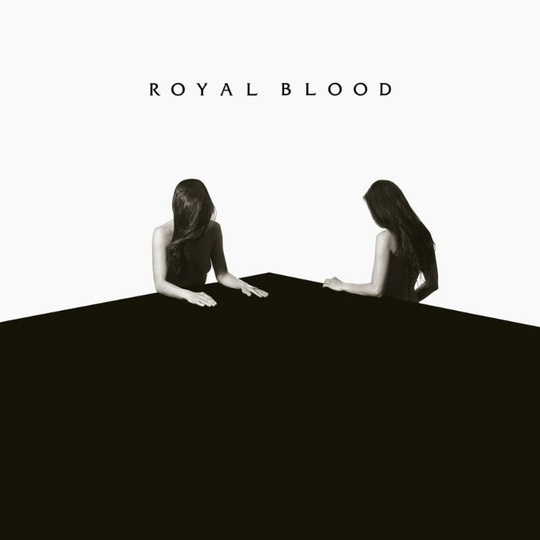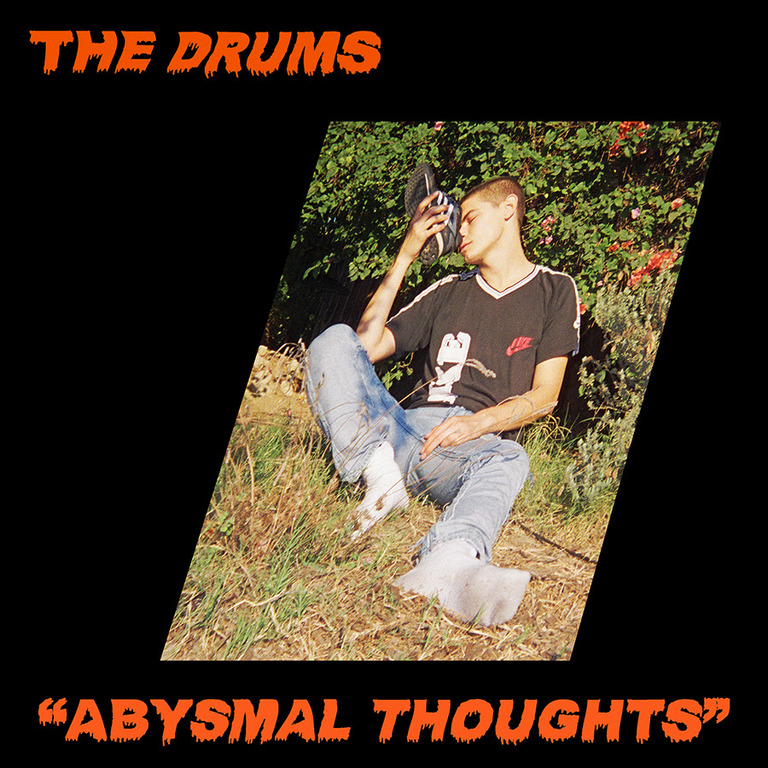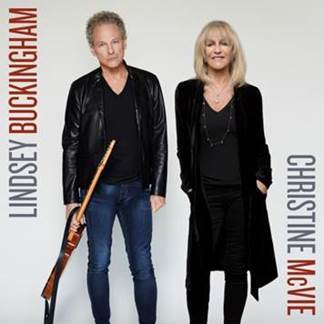The first time I saw Royal Blood live, something happened which is all-too-rare at gigs. I lost my mind. The venue was The Cookie in Leicester. There were about 75 people in the room at the absolute maximum. I forgot about everything else that was going on around me. I wasn't able to be detached and analytical. This was music so visceral, so joyous and with the added element of 'how did he do that, for goodness sake?' about Mike Kerr's bass playing that when their all-too-brief 40 minute or so set, showcasing songs which would eventually form the core of their self-titled debut album came to an end, everyone around me looked a mixture of dazed and elated. They were on in the middle of a three band bill that night, the touring band sandwiched between two local acts. A good portion of the people in the room left after their set. No further entertainment was necessary. We'd seen a band who, if there were any justice in the world, would go on to be massive.
I've used sentences like that previous one up there a lot when talking and writing about music. I'm always wrong. Except, of course we all now know that in the case of Royal Blood, any expectations anyone may have had about where they would find themselves after the cycle of their debut album were wildly exceeded. For a spell back in 2015/16, their songs, and particularly the instrumental beds of some of their best-known tracks, were ubiquitous in TV ads, trailers, sports grounds and so on and so on and so on.
This can lead to pressure, lots of it, when it comes to writing a second album. Do you stray from the template which brought such great success in order to show range, compositional ambition and flair, or do you give the majority of people more of what they want, another 'Little Monster', say, or a worthy successor to 'Out of the Black'? Thankfully, messers Kerr and Thatcher have chosen to plot a third course. How Did We Get So Dark? is a big, grown-up rock album with all the riffs and compositional disappearing down rabbit holes we've come to yearn for from Royal Blood, but there are several songs here that are also primed for radio. Better still, there is a more confident, composed feel to things. A sense of total control exudes from the whole project.
The album is a short, sharp blast. It features ten songs, lasting just under 34-and-a-half minutes. No time for messing around. Immediately things feel a little more grown-up. The title track is opened by Ben Thatcher's pushed, open hi-hats. It unfurls into a confident groove, a chorus which will no doubt fill stadiums later in the year and closes with a glorious instrumental wig-out.
The album's first single, 'Lights Out' is next. You've probably heard it all over the place. It sounds like you'd think a Royal Blood song would sound. Not a penetrating insight I know. The problem being that whereas songs of this quality were shocking and scintillating in 2013/14, Royal Blood suffer here, I think from having exceeded expectations to such an extent back then that a single which is a stone-cold classic, will not be treated with the excitement and reverence it should be. In the arsenal of another band, this would provoke eulogising.
Elsewhere, 'She's Creeping' suffers from both paying too much musical respect to fellow Brightonians Tigercub (it would fit quite well on Abstract Figures In the Dark) and lyrical banality (“Did my message send? God knows I'll send it again”). 'Look Like You Know' tips its hat to various early Noughties indie bands (am I alone in hearing Franz Ferdinand here?) before unleashing a lovely torrent of riffy goodness late on, and recent single 'Where Are You Now' features all the constituent parts to an archetypal Royal Blood song. You've probably heard this one too. It's bright and bouncy to start with, and then breaks down to the kind of riff that will thunder when played live. The coda is one of the album's real high points. And then it's followed by a real mis-step in 'Don't Tell'. They went for groove and missed.
And then for two songs, it all comes right. 'Hook, Line and Sinker' and 'Hole In Your Heart' sound like a band letting go and doing what they want to do, a band constrained by the need to make a 'big' album in other musical choices on the record actually cutting loose, having fun and showing what kind of band they could be if allowed to truly be themselves. The transition from Rhodes groove in the front half of 'Hole In Your Heart' to the enormous chorus and latter section is the sound of a frustrated band finally unleashing their full potential.
In summary, this is an album which is trying to be lots of things for lots of people. The sadness being that where Royal Blood appealed to so many because of its abandoned musicality and aggression, How Did We Get So Dark? may run the risk of losing its soul and beating heart in order to please the masses. It will be interesting to see where Royal Blood go from here.
-
6Haydon Spenceley's Score






















